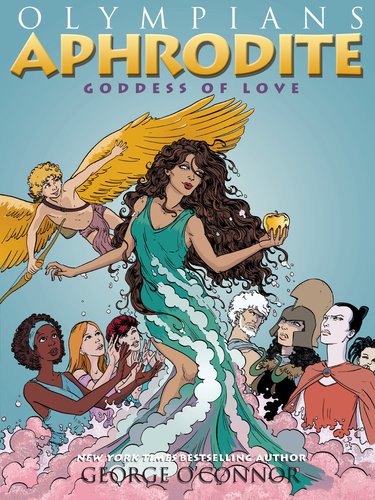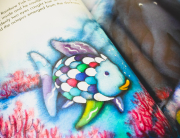It’s a great time to be a middle school student—new and amazing books are aplenty! Mystery, fantasy, mythology, science fiction or nonfiction, there is something for everyone. Here are five new titles that deserve a place of honor in your classroom library. Warning: these titles will not stay on the shelf for long.
The Great Greene Heist by Varian Johnson
(Grades 5-8, Lexile 660)
Infamous school conman, Jackson Greene, has vowed to stay out of trouble ever since the end of seventh grade when a failed caper cost him the friendship of Gaby (who is  definitely, probably not his girlfriend). Now it’s the start of eighth grade and Jackson’s plan is to focus on Botany Club, hang out with his friends and vote for Gaby for student body president. All is going well until rich bully Keith enters the presidential race, using bribery and other underhanded tactics to ensure Gaby’s defeat. Fueled by Keith’s threat to defund their beloved clubs (and maybe making up with Gaby), Jackson and his diverse group of friends set out to take Keith down in a con equal to any from the Oceans 11 team, which happens to be the inspiration for this book. Full of action and intrigue that keeps readers guessing until the very end, students will have a hard time putting this one down.
definitely, probably not his girlfriend). Now it’s the start of eighth grade and Jackson’s plan is to focus on Botany Club, hang out with his friends and vote for Gaby for student body president. All is going well until rich bully Keith enters the presidential race, using bribery and other underhanded tactics to ensure Gaby’s defeat. Fueled by Keith’s threat to defund their beloved clubs (and maybe making up with Gaby), Jackson and his diverse group of friends set out to take Keith down in a con equal to any from the Oceans 11 team, which happens to be the inspiration for this book. Full of action and intrigue that keeps readers guessing until the very end, students will have a hard time putting this one down.
Classroom Connection:
- Jackson really does have his heart in the right place, but he does some very questionable things. Use this novel as an opportunity to discuss if the ends justify the means.
- The characters in this book occasionally refer to events that happened in their lives before this novel takes place. Discuss if this technique makes them more realistic and believable characters or if it hinders the story in some way.
Aphrodite: Goddess of Love by George O’Connor
(Grades 4-8, Lexile GN660)
Aphrodite: Goddess of Love is the sixth installment in the Olympian series by George O’Connor. Aphrodite is a tricky goddess to bring into the middle school classroom, but  O’Connor manages to find just the right balance of mythological accuracy and appropriateness. Focusing first on her creation, then the beauty contest between Hera, Athena and Aphrodite, readers get good insight into the powers this goddess is meant to represent. Because of her ability to control desire, Aphrodite is the most powerful and dangerous of all the Olympians. Would these three goddesses really squabble over who is the prettiest? Not likely. This version does an excellent job showing the layers of what was really going on—a power struggle between discipline, military might and desire. This series makes a great companion to the numerous stories inspired by Greek mythology, most notably the Percy Jackson series.
O’Connor manages to find just the right balance of mythological accuracy and appropriateness. Focusing first on her creation, then the beauty contest between Hera, Athena and Aphrodite, readers get good insight into the powers this goddess is meant to represent. Because of her ability to control desire, Aphrodite is the most powerful and dangerous of all the Olympians. Would these three goddesses really squabble over who is the prettiest? Not likely. This version does an excellent job showing the layers of what was really going on—a power struggle between discipline, military might and desire. This series makes a great companion to the numerous stories inspired by Greek mythology, most notably the Percy Jackson series.
Classroom Connection:
- Zeus refuses to judge who is the most beautiful between his wife, his daughter and Aphrodite. In doing so, he and Eris ensure the Trojan War will happen. Why would Zeus want the humans to engage is such a major conflict?
- Even today we have many words inspired by Aphrodite and her attendants, the Charites. How do the meanings of words like charity, charisma, grace, euphoria and aphrodisiac relate to this myth?
Explorer: The Lost Islands edited by Kazu Kibuishi
(Grades 4-9, Lexile GN430)
Seven stories by nine authors take readers to seven islands, each as different as those who created them. In “Desert Island Playlist” by Raina Telgmeier and Dave Roman, a young  girl wakes up on an unknown island with little more than a recently purchased book. Soon she finds a strangely familiar baby alone on the island, then an equally familiar old woman who has a beat up copy of the same book. “The Fishermen” by Kazu Kibuishi is a beautiful story with strong comparisons to Moby Dick. The illustrations in “Loah” are absolutely breathtaking, and it is a good story about humility and teamwork. Explorer: The Lost Islands (as well as the other two books in this series, The Mystery Boxes and The Hidden Doors) gives students a chance to sample a variety of artists and authors from this popular medium.
girl wakes up on an unknown island with little more than a recently purchased book. Soon she finds a strangely familiar baby alone on the island, then an equally familiar old woman who has a beat up copy of the same book. “The Fishermen” by Kazu Kibuishi is a beautiful story with strong comparisons to Moby Dick. The illustrations in “Loah” are absolutely breathtaking, and it is a good story about humility and teamwork. Explorer: The Lost Islands (as well as the other two books in this series, The Mystery Boxes and The Hidden Doors) gives students a chance to sample a variety of artists and authors from this popular medium.
Classroom Connection:
- Use this series to introduce creative writing around a theme. Each story is so unique, students will be able to see how creative they can be within the constraints of a writing prompt.
- Each mysterious island can offer inspiration to springboard to extension projects. Have students choose an island and write additional adventures relating to it.
The Port Chicago 50: Disaster, Mutiny, and the Fight for Civil Rights By Steve Sheinkin
(Grades 5-9, Lexile 950)
During World War II, African American servicemen were only allowed to hold the lowest positions in the Navy. At Port Chicago, 1,431 enlisted African Americans were tasked with loading ammunition onto ships. With no safety training and constant pressure from 71 white officers, the men lived in constant fear of the dangerous cargo. On July 17, 1944, their greatest fears were realized: small explosion set off a larger explosion, completely destroying the port and two ships. The survivors were given the horrific task of finding pieces of the victims. They were then sent to a different port, under the same officers and conditions. Fifty men refused to work with ammunition again, agreeing to obey any order but that one. All of them were tried and convicted of mutiny, to set an example to others who would challenge the status quo. Interspersed with the story of these men are those of other brave African Americans who sacrificed for a country that denied them the same freedoms guaranteed to others.
loading ammunition onto ships. With no safety training and constant pressure from 71 white officers, the men lived in constant fear of the dangerous cargo. On July 17, 1944, their greatest fears were realized: small explosion set off a larger explosion, completely destroying the port and two ships. The survivors were given the horrific task of finding pieces of the victims. They were then sent to a different port, under the same officers and conditions. Fifty men refused to work with ammunition again, agreeing to obey any order but that one. All of them were tried and convicted of mutiny, to set an example to others who would challenge the status quo. Interspersed with the story of these men are those of other brave African Americans who sacrificed for a country that denied them the same freedoms guaranteed to others.
Classroom Connection:
- The book constantly questions the fact that these men were risking their lives to preserve a freedom they were not allowed to fully realize. Have students compare arguments made in 1944 to those being made today about equal rights in the armed forces.
- While all 50 of the men have since passed away, the Friends of Port Chicago National Memorial (portchicagomemorial.org) are still petitioning the U.S. Navy to overturn the mutiny conviction. Have students research and debate if and why this matters to people alive today.
Extreme Scientists: Exploring Nature’s Mysteries from Perilous Places by Donna M. Jackson
(Grades 5-8, Level V, Lexile NC1130)
Those who think careers in science are safe, dull and boring will be shocked by Extreme Scientists, another great title in the outstanding Scientists in the Field series. Meet Paul Flaherty, a meteorologist who flies through hurricanes to collect life-saving data from the eyes of these dangerous storms. Or Hazel Barton–she is o ne of the first humans to enter remote caves to study and collect microbes that can be made into lifesaving medicines. Caving might not sound dangerous, but one wrong move and Barton and her team may never see the surface again. Next, botanist Stephen Sillett climbs hundreds of feet to the top of the tallest forests in the world to study the unique life that lives there. If a branch breaks or equipment fails, it might be his last climb. Why do these scientists risk it all? They are not thrill seekers but are passionate about their fields, constantly yearning to learn more to improve human life and preserve our environment.
ne of the first humans to enter remote caves to study and collect microbes that can be made into lifesaving medicines. Caving might not sound dangerous, but one wrong move and Barton and her team may never see the surface again. Next, botanist Stephen Sillett climbs hundreds of feet to the top of the tallest forests in the world to study the unique life that lives there. If a branch breaks or equipment fails, it might be his last climb. Why do these scientists risk it all? They are not thrill seekers but are passionate about their fields, constantly yearning to learn more to improve human life and preserve our environment.
Classroom Connection:
- Use this title as an opportunity to talk about sacrificing for the greater good. Other scientists in all three of these fields have lost their lives. Is their sacrifice worth the knowledge gained? Have students consider the countless lives saved by early storm warnings and medicines created by microbes. What about the irreplaceable redwood forests that are better protected when better understood?








Leave A Comment